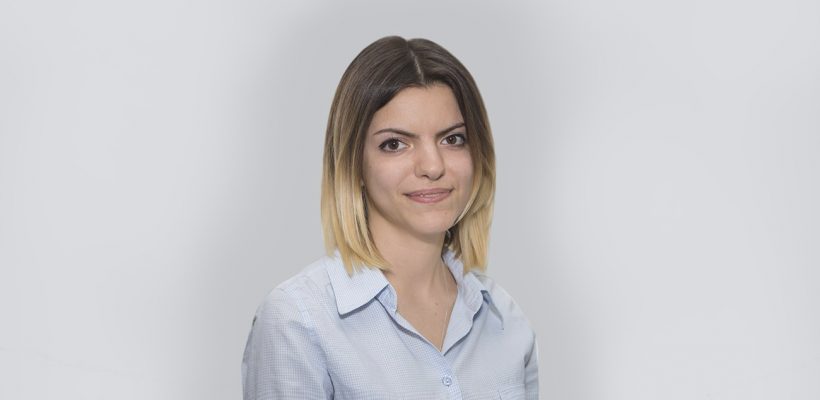
Elen Manukyan (ME IESM ‘17) Reflects on her Education and Career
3 min readAmerican University of Armenia (AUA) alumna Elen Manukyan (ME IESM ‘17) managed to secure her job right after graduation. She works as a senior business analyst at Optym Armenia, the second-largest office of Optym in the world that focuses on building automation and optimization solutions. In an interview with her, she told us about her incentives to study at AUA, her current occupation, and her definition of success in a career.
What influenced your choice of profession initially? Why did you choose to study at AUA?
My bachelor’s degree was in management information systems from the Armenian State University of Economics. When I graduated, I realized that I don’t want to continue my education at the same university. So I researched various master’s programs, based on which I figured out that AUA’s IESM [Industrial Engineering and Systems Management] program was exactly what I needed to continue my education. Plus, the studies were in English, the culture overall was completely different at AUA from what we have in other universities. Thus, my choice was obvious, I had no doubt.
When I decided to prepare for the admission exams, I came to the AUA library for the first time, and I fell in love with AUA from the first step I made into the library.
Tell us about your student years at AUA.
The first months were really hard because everything was different, even the desks 🙂 After the first group work we did, I understood that AUA is for students who want to study. The library, labs, classrooms, cafeteria, and even the corridors are designed to meet students’ needs. We were at the university the whole day, we lived there. And I started to like my daily life more and more. Now I really miss those days a lot.
As an AUA alumna, how would you evaluate AUA’s contribution to your current achievements?
First of all, the knowledge I got at AUA is the biggest contribution to my achievements. By knowledge, I don’t mean the formulas we learned in Probability Theory classes or linear programming in Operations Research. I mean the skills and techniques we acquired. We learned how to research, how to learn as fast as possible, how to prepare for different kinds of presentations, how to read articles the whole week and prepare for the exams not having any idea what questions will be included in the exam, etc. My point is, these are real-life problems which we face during our daily routine.
No one will ask you the formula of k-combinations in your workplace (even if someone asks, you can google it), but you will have to be able to give presentations of what you and your team did, and do it very quickly, because you have only 20 minutes to prepare, and 15 minutes to present. You will have to be able to learn as much as possible when an experienced person is talking about the specific sphere he/she works, as he/she is there for only one hour and you should be able to take notes correctly, as later those notes will become documentation or requirements for the application your team is going to develop. So, I acquired all of these skills at AUA.
Tell us about your current occupation. What do you do?
I am the Senior Business Analyst of a project which is developing an application for scheduling flights for airline companies. The airline industry is very specific, and there is not so much literature to learn about it.
Our team is writing an application, which will be used by schedulers of different airline companies.
There are real users speaking with very specific terminology and we need to understand that and implement the application accordingly. There are experts who have worked in this sphere their whole life and they help us figure out what the application is expected to do.
As a business analyst, I am responsible for “translating” all this information to requirements, user stories, technical tasks for our developers, who are doing the magic of creating the application for users. I am also testing the results, of course, along with our QA [quality assurance] team, to see if the requirements were met and everything is working as expected. During this development process, I do different demos to product/delivery teams, who later will work with the clients and explain to them how things work. And, in the end, when the application is finally ready to be delivered to the client, I will write the User Manual to guide them through the different parts of our application.
In general, how would you define success in a career?
The key for success is that a person should never stop learning and being curious about the sphere he/she is working in. We should always dig deeper and try to find as many “treasures” in our career as possible.
